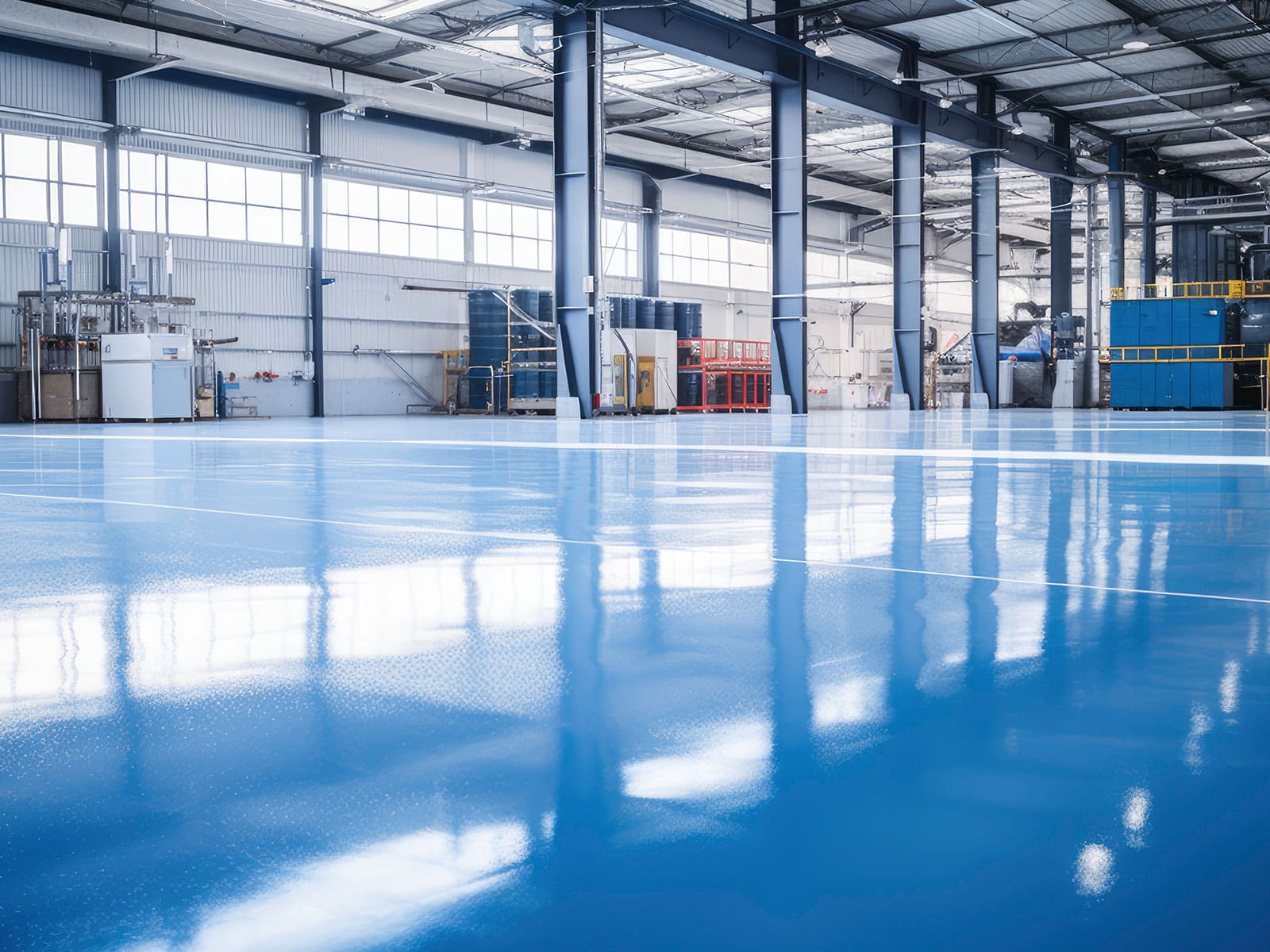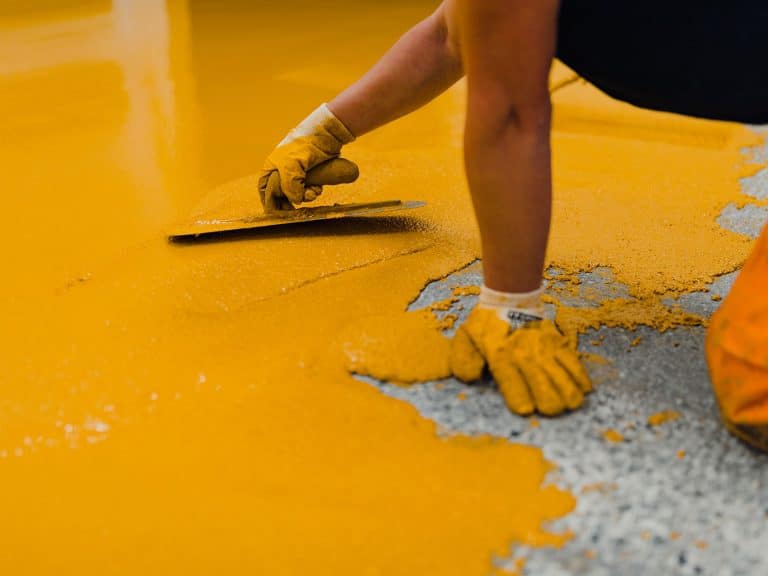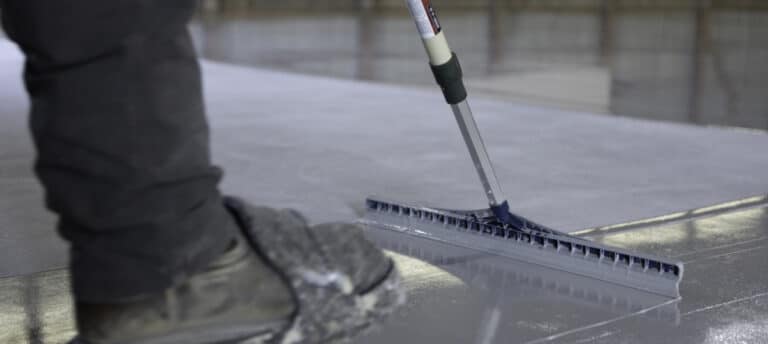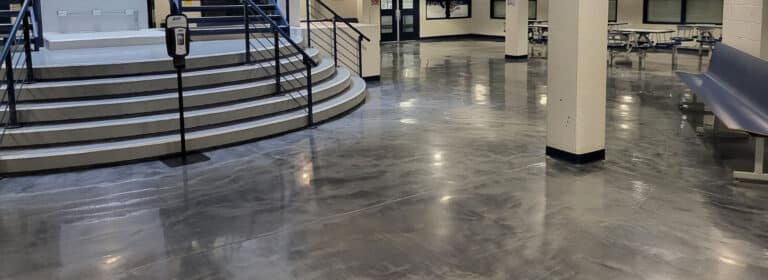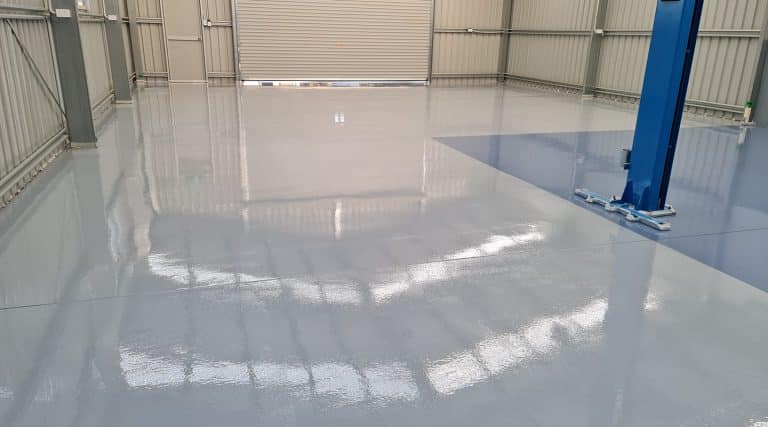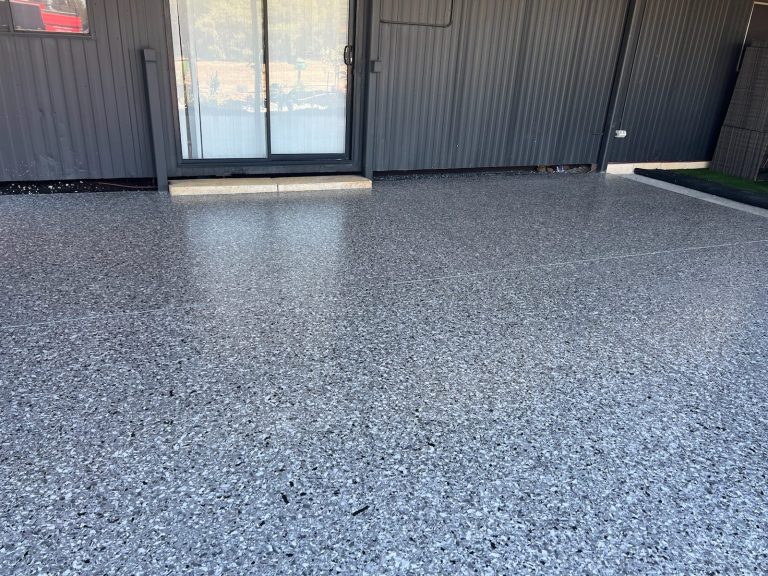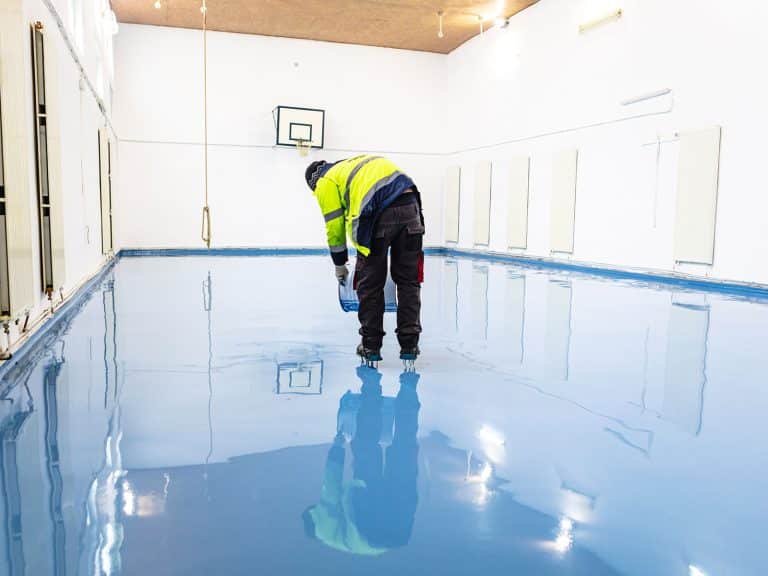Epoxy Flooring vs. Tiles: Which Option is Best?
When it comes to upgrading your floors, you want an option that is durable and long-lasting but still eye-catching and tailored to meet your needs.
Whether it’s for your Perth home, garage, or commercial space, the decision often boils down to epoxy flooring vs. tiles.
Both options bring their own set of benefits to the table, but understanding the nuances can make all the difference in choosing the right fit for your space.
In this guide, we’ll help you make an informed decision by covering:
- A brief overview of epoxy and tiles
- Side-by-side comparison of epoxy flooring vs. tiles
- Practical tips to help make your choice
From cost considerations to durability, maintenance, and aesthetic appeal, we’ve got you covered.
Read on to find out everything you need to know.
Epoxy and Tiles Overview
When considering a new flooring solution, it’s crucial to weigh the pros and cons of each option.
Both epoxy flooring and tiles have unique attributes that make them stand out. Here’s a breakdown to help you navigate the decision-making process.
Epoxy Flooring
Epoxy flooring is a seamless solution that combines resin and hardeners to create a tough, durable surface.
Renowned for its strength and longevity, this flooring can withstand heavy traffic and resist stains, making it an ideal choice for areas that demand a lot from their floors.
Its versatility in design also means it can mimic various finishes, including marble, granite, or even just a glossy sheen, offering both functionality and aesthetics.
Pros:
- Durability and Strength: Epoxy floors are renowned for their resilience. They can withstand heavy foot traffic, impacts, and chemical spills, making them ideal for garages, industrial spaces, and high-traffic areas in homes.
- Low Maintenance: Unlike tiles, epoxy floors don’t have grout lines, which means they’re easier to clean and maintain. A simple mop or sweep is often all it takes to keep them looking pristine.
- Versatility in Design: Epoxy offers a wide range of finishes, from solid colours to effects that mimic granite, marble, or even intricate patterns. This flexibility allows for personalised design choices to match any decor.
- Seamless Finish: The continuous surface of epoxy means there are no cracks or crevices where dirt and bacteria can hide, promoting a cleaner and more hygienic environment.
How Long Does Epoxy Flooring Last?
Cons:
- Preparation and Application Time: The process of installing an epoxy floor requires significant preparation, including repairing any cracks or damage to the underlying concrete, and the application process can take several days to complete.
- Slippery When Wet: Epoxy floors can be slippery when wet, which might pose a hazard in areas prone to spills or moisture.
- Sensitivity to UV Light: Some types of epoxy can yellow over time when exposed to direct sunlight, affecting the aesthetic appeal.
Tiles
Tiles are a traditional flooring choice that offers a wide range of designs, textures, and colours. From ceramic and porcelain to natural stone, tiles can complement any decor style.
They are particularly favoured for their ease of maintenance and cool touch, a boon in Perth’s warm climate. However, grout lines can be a challenge to keep clean, and tiles are susceptible to cracking under heavy impact.
Pros:
- Wide Range of Options: Tiles come in various materials, colours, textures, and sizes, allowing for extensive customisation to fit any room’s aesthetic.
- Cool and Comfortable: In Perth’s warm climate, tiles offer a cool surface underfoot, making them a popular choice for living areas, kitchens, and bathrooms.
- Durability: High-quality tiles are durable and can last for decades when properly installed and maintained. They’re also resistant to moisture, making them ideal for wet areas.
Cons:
- Grout Maintenance: The grout lines between tiles can collect dirt and grime, requiring regular cleaning to prevent staining and maintain a fresh look.
- Hardness: Tiles are hard and unyielding, which can be uncomfortable to stand on for long periods and can lead to breakage if heavy objects are dropped on them.
- Installation Complexity: Installing tiles can be a complex process, requiring precise cutting and placement, especially for patterns or larger tiles. This often means higher installation costs compared to other flooring options.
Flooring Face-Off: Weighing Your Options
Choosing the right flooring is more than just a matter of taste—it’s about functionality, longevity, cost-effectiveness, and environmental impact.
Here’s how epoxy flooring vs. tiles stack up against each other across several key comparison factors.
| Comparison Factor | Epoxy | Tiles |
| Installation | Professional recommended for best results | DIY is feasible; professional installation ensures precision |
| Durability | Highly durable, resistant to stains, chemicals, and heavy traffic | Durable but can crack under heavy impact; lifespan varies by material |
| Maintenance | Easy to clean; requires minimal upkeep | Requires regular cleaning, especially grout lines |
| Aesthetic Variety | Customisable colours and patterns, but limited by the material’s nature | Wide range of colours, designs, and materials |
| Cost | Varies; generally higher upfront but cost-effective over time | Initial costs vary widely; natural stone is expensive, and ceramic more affordable |
| DIY-Friendliness | Possible but challenging without prior experience | More accessible for DIY, especially with some home improvement experience |
| Comfort & Warmth | Hard and cool underfoot; may require rugs for warmth and comfort | Generally cooler, which can be an advantage or disadvantage depending on climate |
| Environmental Impact | Varies; some products are eco-friendly, but the chemicals involved can be harsh | Eco-friendly options available, like recycled or natural materials |
Efficiency and Installation
- Epoxy: The installation process is time-consuming, requiring a clean, prepared surface and several layers that must cure over time. However, once installed, its seamless nature makes it highly efficient for cleaning and maintenance.
- Tiles: Tile installation can be labour-intensive, especially for intricate designs or larger areas. Efficiency gains are seen in the ease of replacing individual tiles if damaged, but the presence of grout lines can make thorough cleaning more challenging.
Cost
- Epoxy Flooring: Initially, epoxy might seem more expensive due to the preparation and materials required. However, considering its durability and minimal maintenance needs, it can be a cost-effective solution in the long run.
- Tiles: The cost for tiles can vary widely based on the type of tile chosen (ceramic, porcelain, stone, etc.). While the upfront cost might be lower for basic options, high-end tiles and installation can quickly add up. Regular maintenance of grout lines can also incur additional costs over time.
Durability and Lifespan
- Epoxy: Known for its resilience, epoxy can last for decades with proper installation and care. Its resistance to stains, impacts, and traffic makes it a durable choice for both commercial and residential spaces.
- Tiles: The durability of tiles depends greatly on the material. Porcelain and high-quality ceramic tiles can last as long as epoxy when properly maintained, though they are susceptible to cracks and chips from impacts.
Aesthetics
- Epoxy Flooring: Epoxy offers a modern, sleek appearance with a vast array of colours and patterns, including options that mimic natural stone or even 3D effects. Its seamless finish can also make spaces appear larger and more cohesive.
- Tiles: Tiles offer unmatched versatility in aesthetics, with options ranging from rustic terracotta to sophisticated marble. The ability to create unique patterns and texture variations can add character and depth to any space.
Environmental Impact
- Epoxy: Epoxy is a synthetic material, and while its longevity is a plus, its production and eventual disposal raise environmental concerns. Some products emit volatile organic compounds (VOCs) during application, though eco-friendly formulas are available.
- Tiles: Ceramic and porcelain tiles are made from natural clay, making them more environmentally friendly. Tiles can also be recycled, and natural stone tiles have a lower environmental footprint, though quarrying has its ecological implications.
Additional Factors
- Temperature and Comfort: Tiles remain cool, which is beneficial in Perth’s climate, but they can be hard and cold underfoot. Epoxy while not inherently cold, doesn’t offer the same level of comfort as softer flooring options.
- Health and Safety: Epoxy’s seamless surface resists moisture and bacteria growth, making it a hygienic option. However, its slipperiness when wet can be mitigated with textured finishes. Tiles are also hygienic but require diligent grout cleaning to prevent mould and mildew.
Final Thoughts: Choosing Your Perfect Flooring
Here’s a brief recap of the main differences and the pros and cons of each, aimed at guiding you toward the flooring that best suits your individual needs.
Epoxy Flooring:
- Pros: Offers exceptional durability and resistance to wear, making it ideal for high-traffic and industrial areas. It’s easy to maintain, provides a seamless and customisable appearance, and can be applied over existing concrete, reducing installation time.
- Cons: The installation process can be lengthy and requires professional expertise. Epoxy can be slippery when wet, though this can be mitigated with textured finishes. It may also be yellow over time if exposed to direct sunlight.
Tiles:
- Pros: Tiles come in a vast array of designs, materials, and textures, allowing for extensive customisation. They’re cool underfoot, which is a plus in Perth’s warm climate, and damaged tiles can be individually replaced.
- Cons: Grout lines can accumulate dirt and require regular cleaning to maintain their appearance. Tiles can crack under heavy impact, and the installation process can be complex and costly, depending on the material and design chosen.
When it comes to the final choice, epoxy is your best bet, especially in garages, commercial spaces, or any area that experiences heavy use.
Remember to assess the upfront costs versus long-term maintenance. Epoxy might have a higher initial cost but offers savings over time through durability and low maintenance.
Trust PM Industries with Your Next Flooring Project
Our team of experts is dedicated to helping you navigate your options, offering personalised advice tailored to your unique needs and preferences.
Contact PM Industries today to:
- Receive expert guidance on the most suitable flooring options for your space.
- Explore a vast selection of designs and materials that align with your vision.
- Get a comprehensive quote that considers your budget and long-term satisfaction.
Reach out to a member of the PM Industries team to claim your 100% obligation-free quote today.

